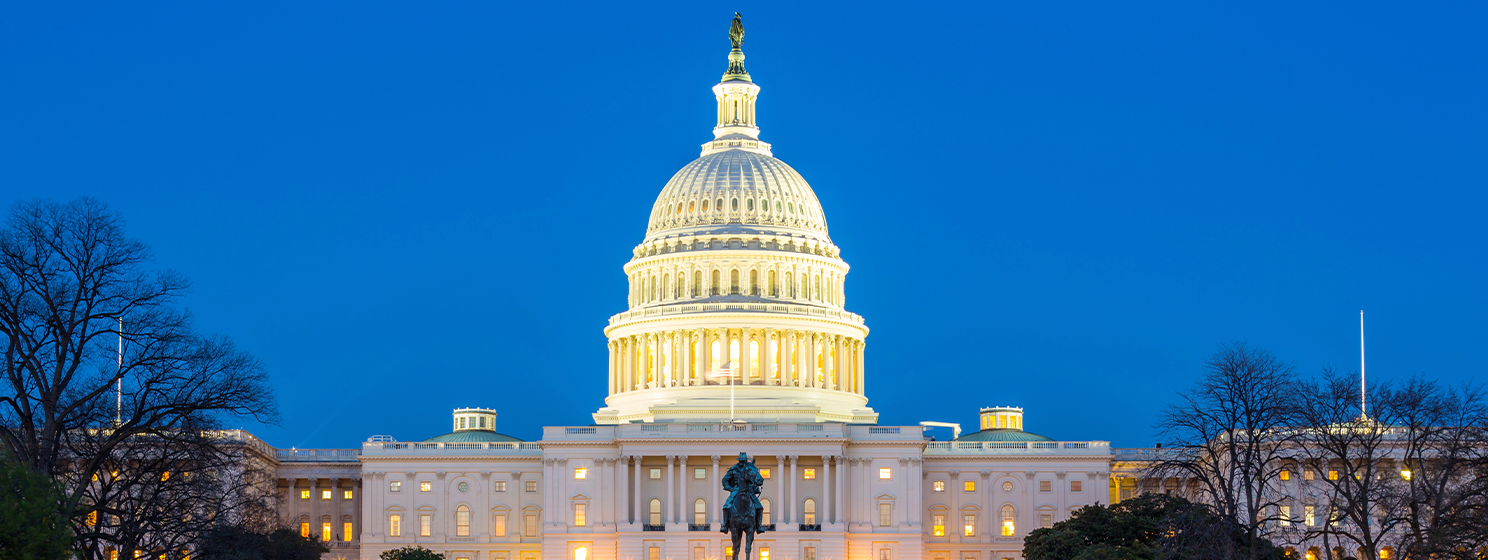|
Getting your Trinity Audio player ready...
|
The fate of the United States Senate’s market structure legislation could come down to whether the parties can play nice with each other, while the White House appears to be reconsidering its nominee for crypto oversight.
- Senate Dems plead for market structure input
- GENIUS Act to get tweaks in market structure?
- US-UK financial overseers strike crypto collaboration
- House GOP’ers support Trump’s call for tokens in retirement plans
- White House mulling CFTC chair options
- CFTC digital assets subcommittee expands
- WLF ‘stands’ with Winklevii super PAC, okay buy-and-burn plan
As the Senate Banking Committee’s Republican leadership continues to tinker with the language of its digital asset market structure bill (the Responsible Financial Innovation Act of 2025 or RFIA), Senate Dems are asking for a greater say in how this process shakes out. But the GOP doesn’t seem all that interested in their input.
On September 19, a dozen Senate Dems—including notably pro-crypto figures like Ruben Gallego (D-AZ) and Kristen Gillibrand (D-NY)—released a statement calling on their GOP colleagues to “agree to a bipartisan authorship process, as is the norm for legislation of this scale. Given our shared interest in moving forward quickly on this issue, we hope they will agree to reasonable requests to allow for true collaboration.”
The statement referred back to the Framework for Market Structure Legislation released by the same dozen Dems earlier this month. The Dems said this framework highlighted their “desire to work on this issue” with their colleagues across the aisle, adding that “[f]or this process to work, it must start from a place of mutual understanding. We look forward to engaging with our Republican counterparts in such a manner.”
Politico quoted some Democratic aides saying the senators were hoping for greater say in crafting market structure language from scratch rather than “providing input on a GOP-written product.” Dems also hope to be “looped in on technical assistance offered by regulatory agencies,” including the Securities and Exchange Commission (SEC) and the Commodity Futures Trading Commission (CFTC).
But just the day before this bipartisan plea was issued, Committee chair Tim Scott (R-SC) was issuing tweets talking about how the GOP was overcoming “Democrat Dysfunction” and slamming their “political games.” Which certainly makes it seem that the Dems’ quest for bipartisanship isn’t a cross-party concern.
Au contraire, says Scott’s spokesperson Jeff Naft, who told Politico the senator and other Committee GOP members have “a proven track record of bipartisanship.” Naft said GOP senators “hope their Democratic counterparts will come to the table to make America the crypto capital of the world.”
A spokesperson for committee member Cynthia Lummis (R-WY) claimed the GOP members have been “actively soliciting feedback from our Democratic counterparts since July without receiving input,” but nonetheless “remain committed to bipartisan collaboration.”
Sen. Scott previously cited a desire to mark up the market structure bill by month’s end, a timeline that some other GOP committee members claimed was unrealistic given the complexity of the legislation. GOP committee staff now say they’re willing to wait until the week of October 20 to mark up RFIA, although whether that indicates a greater willingness to negotiate with Dems remains to be seen.
The Banking Committee is only one piece of this puzzle, as the CFTC—which is to be given the lion’s share of crypto oversight—is overseen by the Senate Agriculture Committee, which will have its say on the RFIA before it heads to the Senate floor for a vote.
GENIUS not quite a done deal?
Further complicating matters is the desire by some members of the House of Representatives, including Rep. French Hill (R-AR), to see the Senate’s market structure effort include tweaks to the stablecoin-focused GENIUS Act, which President Donald Trump signed into law in July.
The House had its own stablecoin legislation (STABLE Act) that was ultimately sidelined in favor of approving the Senate-initiated GENIUS. Now Hill, the chief architect of the House’s market structure bill (CLARITY Act), wants the Senate to return the favor by amending GENIUS to incorporate some of CLARITY’s stablecoin language. This could include specifics on banning non-financial companies from issuing their own stablecoins and holding stablecoin issuers accountable through the use of outside auditors.
Speaking of GENIUS, September 18 saw the U.S. Treasury Department announce plans to open a public comment period on how Treasury will implement various GENIUS provisions. While the comment process has yet to officially open, the public will be given 30 days in which to submit comments, along with “data and other information.”
Meanwhile, the Treasury’s earlier request for comment on “innovative or novel methods, techniques, or strategies that regulated financial institutions use, or could potentially use, to detect illicit activity involving digital assets,” remains open until October 17.
Transatlantic crypto taskforce is go
The Treasury Department made international news on Monday with the announcement of a partnership with its United Kingdom counterparts on establishing a Transatlantic Taskforce for Markets of the Future. The news follows Treasury Secretary Scott Bessent’s visit to the U.K. last week to meet with Chancellor of the Exchequer Rachel Reeves.
The Taskforce has been given a mandate to recommend ways to “enhance collaboration on capital markets and digital assets and other innovative financial activities.” The Taskforce will be given 180 days to report its findings to the U.K.-U.S. Financial Regulatory Working Group (FRWG).
Specifically, the Taskforce will explore options for “short-to-medium term collaboration on digital assets while legislation and regulatory regimes are still developing, as well as options for long-term collaboration and additional opportunities for wholesale digital markets innovation.”
A second goal is to explore options “to improve links between our capital markets to enhance the growth and competitiveness of both U.K. and U.S. markets, focusing on reducing burdens for U.K. and U.S. firms raising capital cross-border.”
The Taskforce will be chaired by officials from both HM Treasury and U.S. Treasury. Additional input will come from both countries’ financial regulators, as well as “leading industry experts to ensure that its recommendations are informed by what matters most to industry.”The U.K. Financial Conduct Authority (FCA) recently sought feedback for establishing minimum standards for digital asset firms seeking to operate in the U.K. The Financial Times reported Monday that the FCA has also begun accelerating the process by which it considers applications for its crypto registration scheme, following widespread criticism that the regulator was dragging its heels.
The FCA’s crypto application approval rate has shot up from just 15% over the past five years to 45% over the past six months. But the FCA’s new energy may have been assisted by its own sluggishness, as the number of applications has fallen by nearly one-half since 2023.
David Geale, the FCA’s executive director for payments/digital finance, told the FT that the regulator has “made a conscious effort to put resources into this.” This includes offering ‘preapproval meetings’ with case officers so applicants have a better understanding what’s expected of them.
Crypto retirement advice
Monday saw Rep. Hill and eight other GOP members of the House Committee on Financial Services send a letter sent to SEC Chair Paul Atkins expressing their support for Trump’s executive order to allow ‘alternative assets’ in Americans’ employer-sponsored 401(k) retirement programs.
The order, issued in August, stated the need for these programs to widen their horizons for “better returns and diversification.” The order directed the SEC to revise its regulations and guidance to eliminate possible confusion in the minds of 401(k) managers as to what will be permitted under this change.
The Department of Labor was similarly tasked with clarifying its position on alternative assets, along with “the appropriate fiduciary process associated with offering asset allocation funds containing investments in alternative assets.”
The nine GOP reps say they “applaud” the goals of Trump’s EO and “encourage the SEC to provide swift assistance to the Secretary of Labor and to make any necessary revisions to its current regulations and guidance. We also request the SEC review bipartisan legislation being advanced in the 119th Congress concerning accredited investors.”
CFTC chair a hard seat to fill
Meanwhile, the drawn-out saga of who will run the CFTC has taken yet another turn. On September 18, Bloomberg reported that the White House was now considering “additional candidates” to fill the CFTC chairman’s seat, suggesting that Trump’s original nominee, Brian Quintenz, might never get his long-delayed confirmation vote.
While the report didn’t confirm that Quintenz’s quest was now hopeless, “an additional slate of potential picks” is being considered, including “government officials focused on crypto policy.” These reportedly include Michael Selig, chief counsel at the SEC’s Crypto Task Force, and Tyler Williams, a former Galaxy Digital exec who currently counsels Treasury’s Bessent on crypto matters.
Quintenz was nominated by Trump in February, but the Senate Ag Committee’s vote on the nomination was cancelled at the last minute not once but twice in late July for unexplained reasons. It later came out that Cameron and Tyler Winklevoss, the brothers behind the Gemini (NASDAQ: GEMI) digital asset exchange, had lobbied Trump on their view that Quintenz wasn’t right for the role.
Tyler later confirmed these reports, claiming that Quintenz held views that are “actually quite antithetical to the ethos of crypto and decentralization.” A group of crypto organizations then went to bat for Quintenz, and Quintenz himself made public some text messages between himself and Cameron, in which the latter appeared to be pressing Quintenz to promise some kind of compensation was in store for grief the twins/Gemini experienced at the hands of the CFTC’s previous leadership.
CFTC digital asset subcommittee staffs up
The CFTC is normally overseen by a chair and four commissioners, but is currently down to a single commissioner, Caroline Pham, following a string of resignations for which Trump has yet to nominate replacements. Regardless, the CFTC is expanding elsewhere, including new members of its Global Markets Advisory Committee and its Digital Asset Markets Subcommittee.
On September 19, Pham announced a new co-chair of the Subcommittee. Scott Lucas, managing director/head of digital assets at J.P. Morgan (NASDAQ: JPM). Lucas will serve alongside existing co-chair Sandy Kaul, the exec VP/head of innovation at Franklin Templeton. Lucas replaces outgoing co-chair Caroline Butler, BNY’s global head of digital assets.
Pham, who plans to step down once the CFTC’s new chair is appointed, welcomed Lucas, saying his “deep knowledge and experience with distributed ledger technology and the rapid evolution of digital asset market structure will be indispensable.”
New members added to the Subcommittee are Katherine Minarik, CLO at Uniswap Labs; Avery Ching, CEO/co-founder of Aptos Labs; James Hill, BNY’s managing director/head of structural innovation; and Ben Sherwin, general counsel at Chainlink Labs.
WLF back Winklevii PAC
We still don’t know for sure who’s behind the new political action committee The Fellowship PAC, but the Winklevoss twins’ own pro-Trump PAC (the Digital Freedom Fund, or DFF) recently picked up an endorsement from the president’s decentralized finance (DeFi) platform World Liberty Financial (WLF).
On September 17, WLF tweeted that it is “proud to stand behind” DFF with the twins “and other crypto industry leaders, to advance President Trump’s crypto vision.” That was followed by near-identical endorsements from WLF co-founder/CEO Zach Witkoff and co-founder/COO Zak Folkman. The specifics—financial or otherwise—of this ‘stand’ haven’t been disclosed.
Meanwhile, WLF’s proposal to buy-and-burn its governance token WLFI has met with overwhelming approval from WLFI holders. The proposal, in which WLF will use “all fees earned by WLFI’s protocol-owned liquidity” to repurchase and “permanently” burn WLFI, reportedly met with a 99.84% ‘yes’ vote.
WLF announced the plan shortly after WLFI was permitted to begin public trading on September 1. The token followed the traditional soar-and-sink trajectory that crypto fans have come to loathe, so WLF decided on a plan to reclaim WLFI “from those not aligned with WLFI’s future.”
WLF hasn’t offered any estimates as to how much WLFI will be bought/burnt via this process, but WLFI could definitely use a boost. News of the vote gave the token a temporary lift to over $0.25 but the price fell below $0.20 by Monday night.
Right on time, the Accountable.US watchdog group published a 34-page report detailing some of the individuals/entities believed to be among the most significant WLFI holders. Titled American Sell-Out, the report claims WLFI was snapped up by (among others) wallets associated with North Korea’s Lazarus Group of hackers and other unsavory characters.
Forbes published its own report on Monday with the title Here’s How Much The Trump Kids Have Made Because Of The Presidency, with the family’s numerous crypto ventures playing a significant role. Trump’s son Eric (another WLF co-founder) is flagged as having “made more money on crypto than any of his siblings,” with Don Jr. (yet another WLF co-founder) in second place and young Barron Trump (also a WLF co-founder) a distant third.
Watch: Breaking down solutions to blockchain regulation hurdles

 01-09-2026
01-09-2026 




